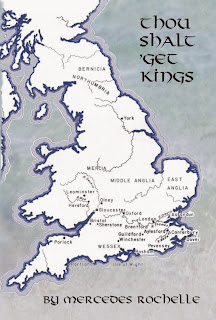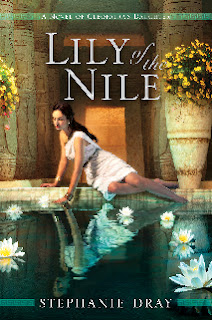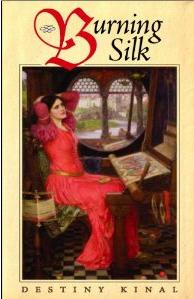 |
| The Wedding Shroud http://www.elisabethstorrs.com/ |
Review by Tracy Falbe
Elisabeth Storrs resurrects the lost world of the Etruscans in her masterful novel The Wedding Shroud set in 407 B.C. Long overshadowed by the Romans, the earlier Etruscan culture of ancient Italy Rome and Veii Veii is only twelve miles from Rome Rome
Once Caecilia arrives in Veii Rome Veii
But some things are a pleasant surprise for Caecilia in her new household. She is given a slave, Cythergis. Never was such a luxury granted to Caecilia in Rome Veii Veii
Despite her elevated status, Caecilia is not a truly liberated woman. The differences in female oppression between Romans and Etruscans are a matter of degree. Although Caecilia is free of the mind-numbing denial and drudgery of a Roman matron, she is still the possession of her husband and her paramount purpose is to produce an heir for Mastarna. This fictional study of female status is carefully crafted by Elisabeth Storrs. Delicate comparisons are presented through the characters of Erene, the courtesan, Caecilia, the proper wife, and Cythergis, the slave woman. All three types are dependent on men and under their control. Erene is strictly for pleasure. She is more than a slave but less than a wife. As a wife, Caecilia is allowed sexual pleasure by Etruscan culture with her husband with the great purpose of procreation looming above all. Most miserable is the slave woman Cythergis, who has endured having her children sold. Although Cythergis enjoys men, she hopes to avoid more pregnancies so she can stop breeding slaves. The nuances of the difficult lives of these three ancient women are touchingly revealed.
Complex relationships in The Wedding Shroud are the ships upon which the story flows. Caecilia struggles to adapt to her new and foreign household where Val Mastarna and his brother Artile, a powerful priest, vie for the affection and approval of their mother, Larthia. The adopted son of Mastarna, Tarchon, is also embroiled in an inappropriate sexual relationship with Artile. The priest is a constant source of meddling within the family, and he soon sinks his painted claws into the vulnerable Caecilia and begins to control her with religion and addictive drugs.
The character of Artile serves to educate the reader about the practices and corruptions of ancient religions. His power is great and even the educated elites are swayed by his interpretations of signs, with the notable exception of his brother Mastarna. Although the Etruscan culture has technology and fine artistry, it remains like all ancient cultures steeped in superstition. The imprint of the primitive world remains deep and fresh despite the presence of architecture, music, metallurgy, writing, and mathematics. Animal sacrifice is commonplace with the most horrifying example shown in wild rites that culminate with the tearing up and eating of fawns. And then as part of a funeral rite, a criminal is savagely executed by having a maddened dog set loose on him.
All of this assaults the sensibilities of Caecilia, whose sheltered upbringing as a female among joyless Romans, leaves her reeling with disgust. Amid the carnal abandon of Veii
I could write another thousand words exploring the subtleties of this novel without giving away any spoilers. Storrs
The Wedding Shroud is available in the Australian market. Hopefully the publisher will make it available in North America soon.
































